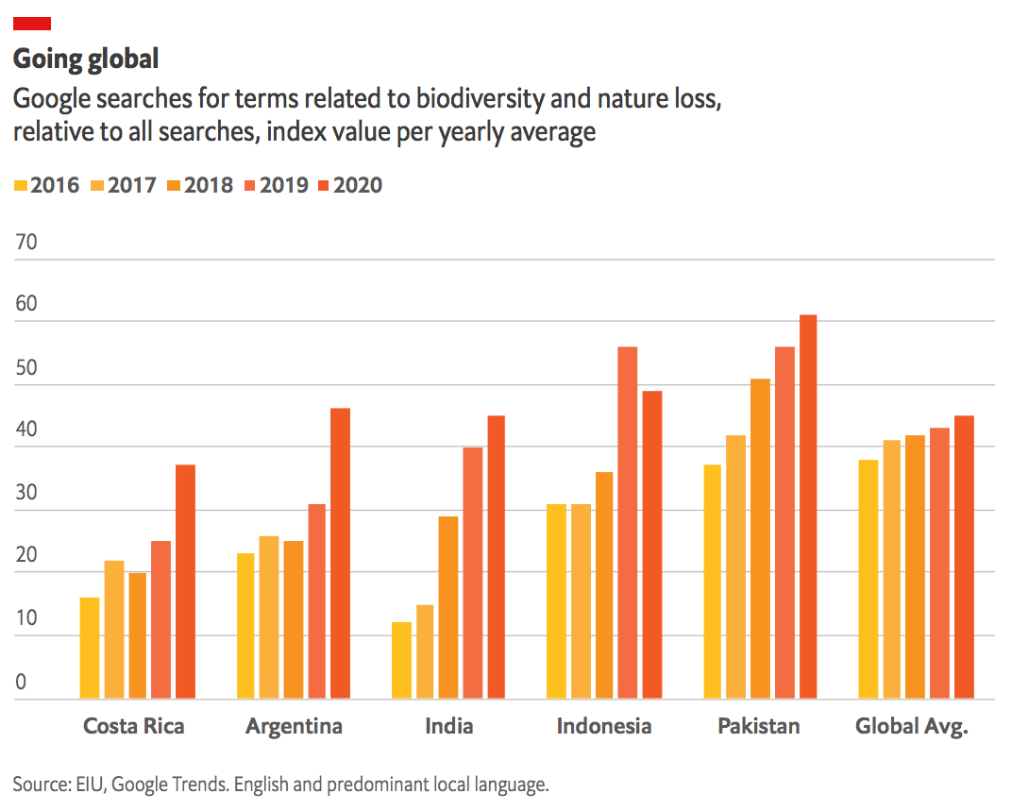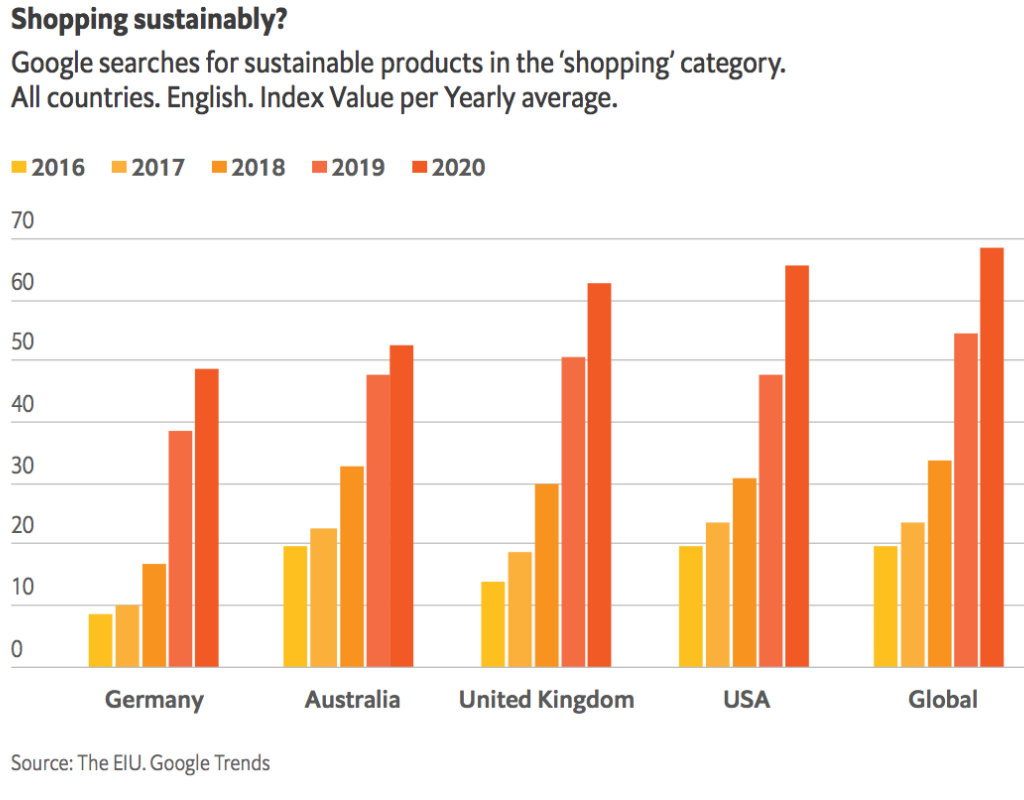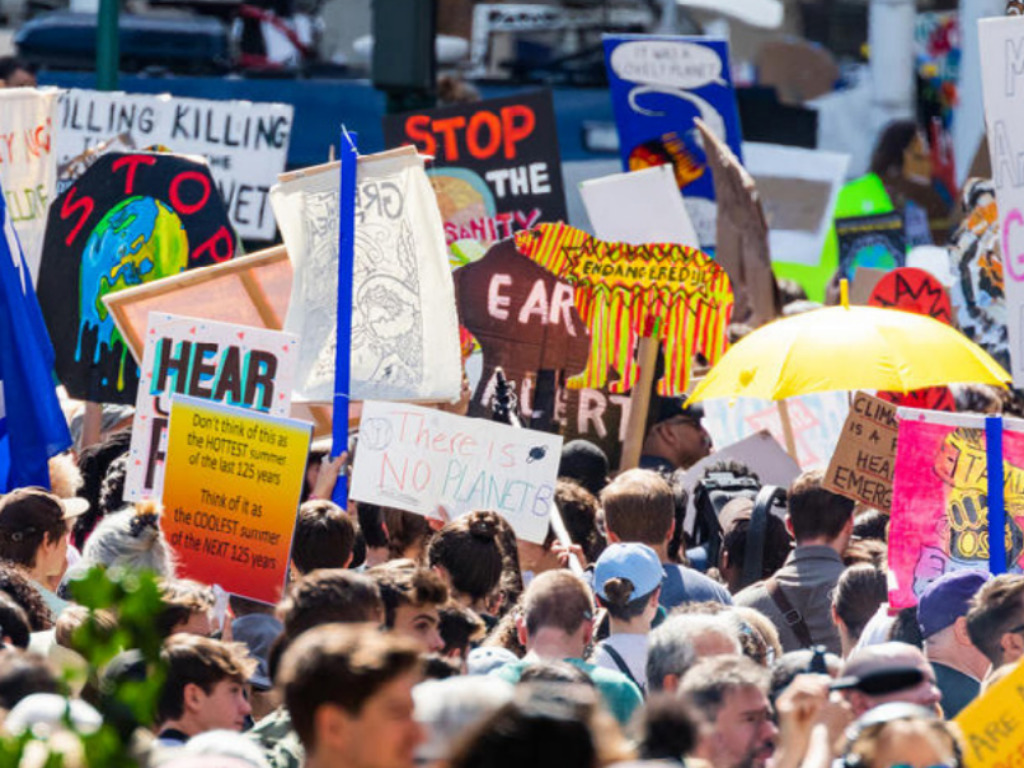‘Eco-wakening’: Hundreds Of Millions Of Global Citizens Are Concerned About Nature, New Research Finds
4 Mins Read
With the International Day for Biodiversity just around the corner, new research conducted by the Economist Intelligence Unit (EIU) and commissioned by World Wildlife Fund (WWF) shows that over the past five years, there has been a significant 16% increase regarding concerns about nature among the public and continues to keep increasing even during the pandemic.
The report titled “An Eco-wakening: Measuring Global Awareness, Engagement and Action for Nature” shows that there has been a dramatic rise in the number of people that are increasingly becoming aware of the planetary crisis and accordingly making changes in their behaviour to drive positive change, with WWF terming it as an ‘eco-wakening’.
Focusing on the rise of digital activism, the research draws attention to the 65% increase in the number of Twitter mentions that speak about concerns regarding nature. Just in the last four years, such mentions and general mentions of biodiversity have risen from 30 million to 50 million on social media platforms alone. Plus, several influencers like Pope Francis, the BBC, and The New York Times; have raised their voices against the atrocities committed on nature with these posts reaching a total audience of around 1 billion people.
The researchers looked at consumer behaviour via Google clicks patterns, with Asian and Latin American countries topping the list when it comes to nature-related searches with countries like Indonesia at 53% and India at 190%. Furthermore, the highest concern (96%) regarding nature loss as a massive global problem came from respondents located in Latin America, underlining the increasing shift in public sentiment is mostly stemming from emerging markets that are experiencing the devastating effects of nature loss.

In a press release seen by Green Queen, Director General of WWF International, Marco Lambertini, said: ‘The results of this research are crystal clear: concern over the impact we are having on the natural world is growing rapidly and particularly in emerging markets, where people are feeling more acutely the impacts of deforestation, unsustainable fishing, species extinction and the decline of ecosystems.”
People are even changing their purchasing habits owing to the rising concerns with data showing that a soaring 71% rise has been noted in the searches for sustainable goods since 2016 in countries like the U.K., the U.S., Germany, Australia and Canada as well as in emerging economies with Indonesia at 24% and Ecuador at 120% thus pushing several sectors like the fashion, food, cosmetics and pharmaceutical to change and respond to these new consumer trends.
The results of this research are crystal clear: concern over the impact we are having on the natural world is growing rapidly and particularly in emerging markets, where people are feeling more acutely the impacts of deforestation, unsustainable fishing, species extinction and the decline of ecosystems
Marco Lambertini, director general of WWF International
Since 2016, more than 159 million signatures have been recorded for biodiversity-related campaigns urging policymakers to take radical steps to preserve nature and restore it for the planet as well as for future generationes to come.

For example, in the Danube-Carpathian region, thousands of citizens signed the petition to show their support for the Water Framework Directive, last year in Slovakia and Ukraine crowdfunding campaigns were held to remove dams and another 51,000 people recently signed a petition in Slovakia that led to the ban of wolf hunting.
Lambertini added: ‘The science and the economics are clear. The public sentiment is now clear. And – the solutions are clear too. Society is supporting a transformation of our economic and development model towards one that finally values nature as our moral duty to all life on Earth, and for the crucial services it provides to our economy, wellbeing, health and security. This is a truly historic “eco-wakening” and the chance to rebalance our relationship with the planet.’
This research only shows that leaders can’t anymore ignore these concerns and will have to answer back with strong policies and investments that help reverse biodiversity loss and secure a nature-positive world that is in alignment with the SDGs and the goals listed in the Paris agreement.
Lead image courtesy of Keith Arnold/WWF.



